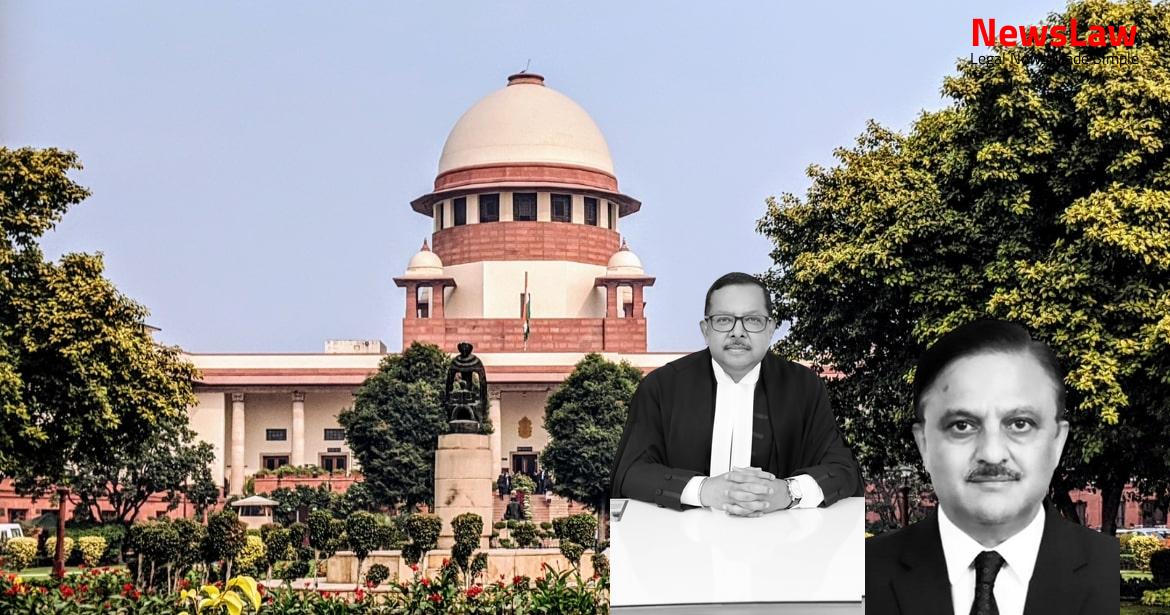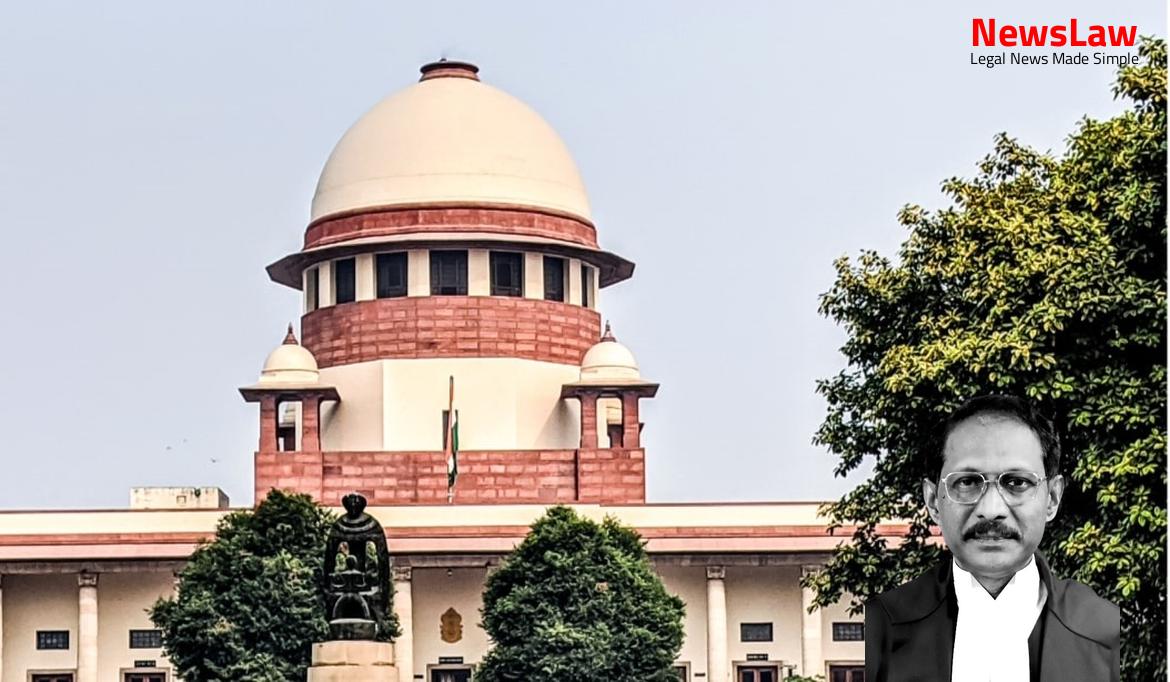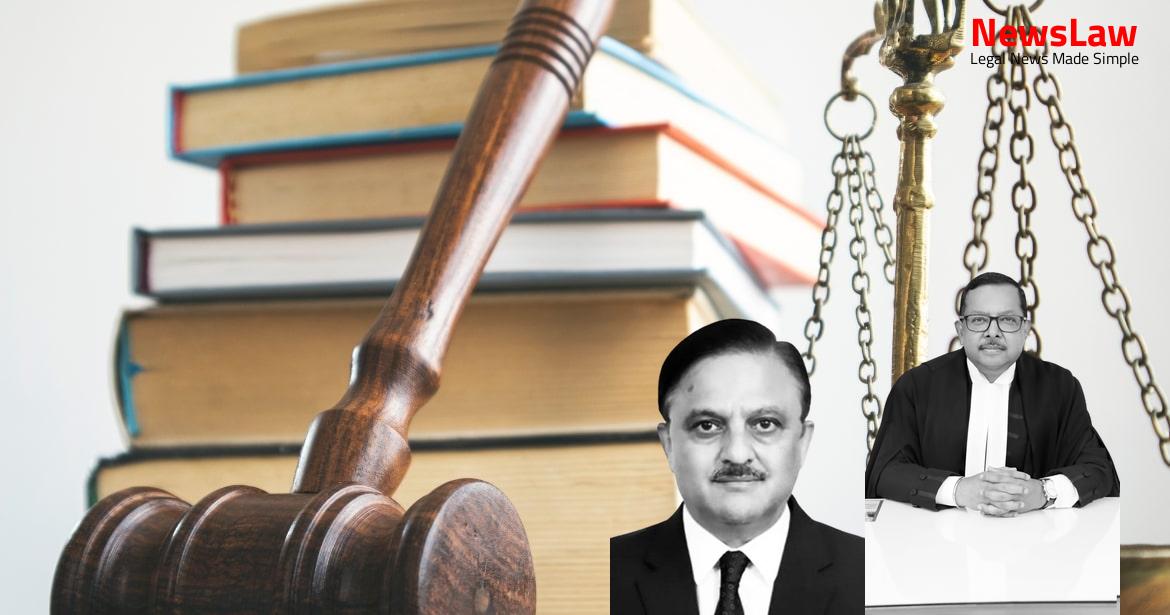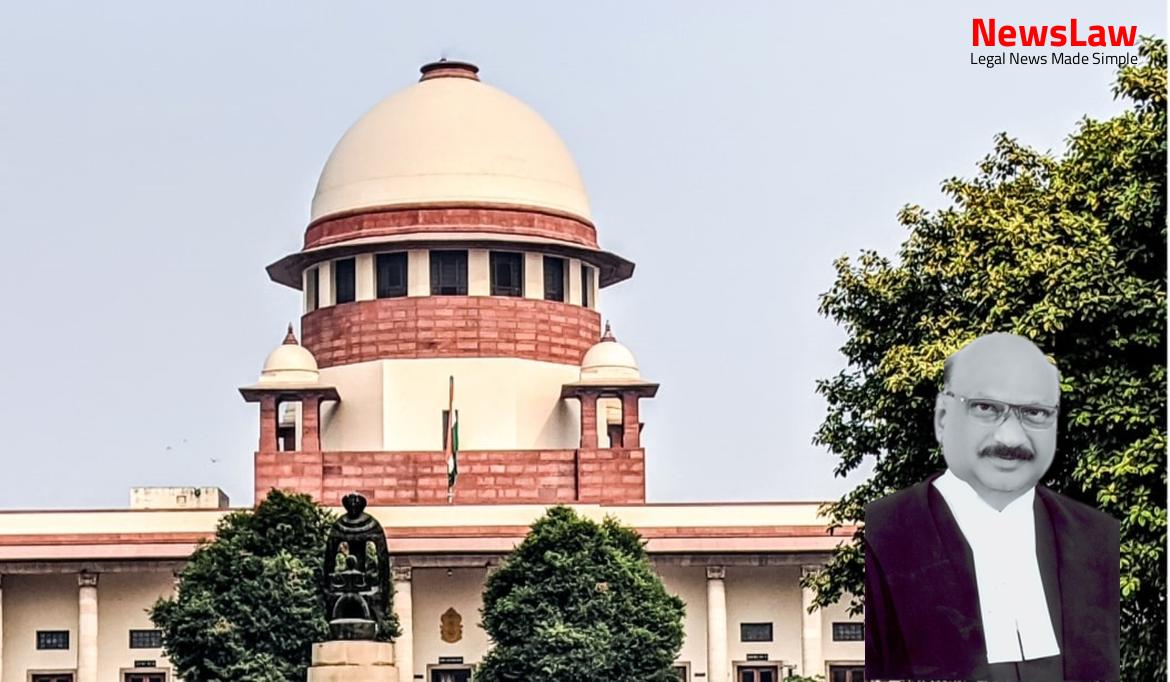Delving into a recent court judgment involving a kidnapping case, the legal analysis takes center stage. The court’s scrutiny led to the quashing of the initial conviction under Section 364A of the Indian Penal Code. Instead, the accused were found guilty under Section 363. With the maximum sentence already served, the court made a significant decision to set the appellants at liberty. A critical examination of the legal aspects prevailed in this intriguing case.
Facts
- The accused nos. 1 and 2 have preferred appeals against the judgment of the High Court of Judicature at Madras which confirmed their conviction and sentence.
- The appellants-accused were convicted under Section 364A read with Section 34 of the Indian Penal Code, 1860.
- Both accused have been sentenced to undergo life imprisonment.
- PW-1 lodged a complaint with the Police on the same night
- Child-PW-2 was 8 years old and in third standard
- Child-PW-2 did not return from tuition class on 20 October, 2010
- FIR under Section 364A of IPC was registered
- Child-PW-2 was kidnapped by the appellants-accused after tuition class
- PW-1 and PW-3 are the parents of the victim child-PW-2
- Child-PW-2 used to visit the house of PW-5 after school
- Appellants-accused and the child were found in a car at a toll gate
- Prosecution’s case involves child being lured into car by appellants-accused
- Male person called PW-3 demanding ransom for releasing the child
- PW-19 arrested accused and rescued the child at Pallikonda toll gate
- Eyewitness saw the child being taken in a Maruti Swift grey color car
Also Read: Analysis of Specific Performance in HUF Property Case
Arguments
- The defense counsel argued that the child witness was tutored by his father and therefore his testimony should not be considered.
- The defense counsel also claimed that no evidence of ransom demand or threat was presented by the prosecution, failing to prove the necessary elements of Section 364A of the IPC.
- The state’s counsel countered by stating that there was a reasonable apprehension of harm to the kidnapped child, supported by evidence from call records and testimonies of witnesses.
- The High Court rejected the call records as evidence due to lack of certification under Section 65B of the Indian Evidence Act, 1872.
- The respondent argues that the prosecution has successfully proven the ingredients of Section 364A of IPC
- This is based on the evidence provided by PW-1 and PW-3
- The argument is that the prosecution has met the requirements of the law in proving their case
Also Read: Judicial Impropriety and Fresh Decision
Analysis
- Police could not trace the person holding the cell phone number used to demand ransom
- No prior enmity or animosity between victim’s parents and accused
- Child-PW-2’s testimony consistent, no challenge to main incident
- Appellants found guilty under Section 363 of IPC for kidnapping
- Inconsistent versions of PW-1 and PW-3 regarding ransom phone call
- Details of phone call records produced by Police
- Kidnapping established under Section 361 of IPC
- Record of call details discarded by High Court due to lack of certification
- Child-PW-2 provided both father’s and mother’s phone numbers during incident
- Section 364A of IPC deals with kidnapping for ransom or similar acts.
- The section defines the act of kidnapping a minor male child under sixteen without the consent of the lawful guardian as a crime.
- The section also covers threats of causing death or harm to the kidnapped person in order to compel a specific action.
- The offence under Section 364A is punishable by death or life imprisonment, along with a fine.
- The evidence of the child-PW-2, the victim in this case, is being carefully considered in light of the legal provisions.
- The call records could have been the best evidence to prove threats and ransom demand.
- Prosecution failed to connect the demand and threat with the accused.
- Ingredients of Section 364A of IPC were not proved.
- Threats given by the accused to cause death or hurt were not established.
- Conviction under Section 364A of IPC set aside, with conviction under Section 361 of IPC instead.
- Maximum sentence under Section 363 of IPC extends to seven years with a fine.
- Appellants have undergone more than eight years of actual incarceration.
Also Read: Judicial Review of Caste Category Quota in Recruitment
Decision
- The appellants’ conviction and sentence under Section 364A of IPC are quashed and set aside.
- The appellants are held guilty of the offence punishable under Section 363 of IPC.
- As the appellants have already undergone the maximum sentence for the offence under Section 363 of IPC, they are directed to be set at liberty.
- The Investigating Officer, PW-19, was not aware of the procedure for obtaining a certificate under Section 65B of the Evidence Act.
Case Title: WILLIAN STEPHEN Vs. THE STATE OF TAMIL NADU AND ANR. (2024 INSC 146)
Case Number: Crl.A. No.-000607-000607 / 2024



